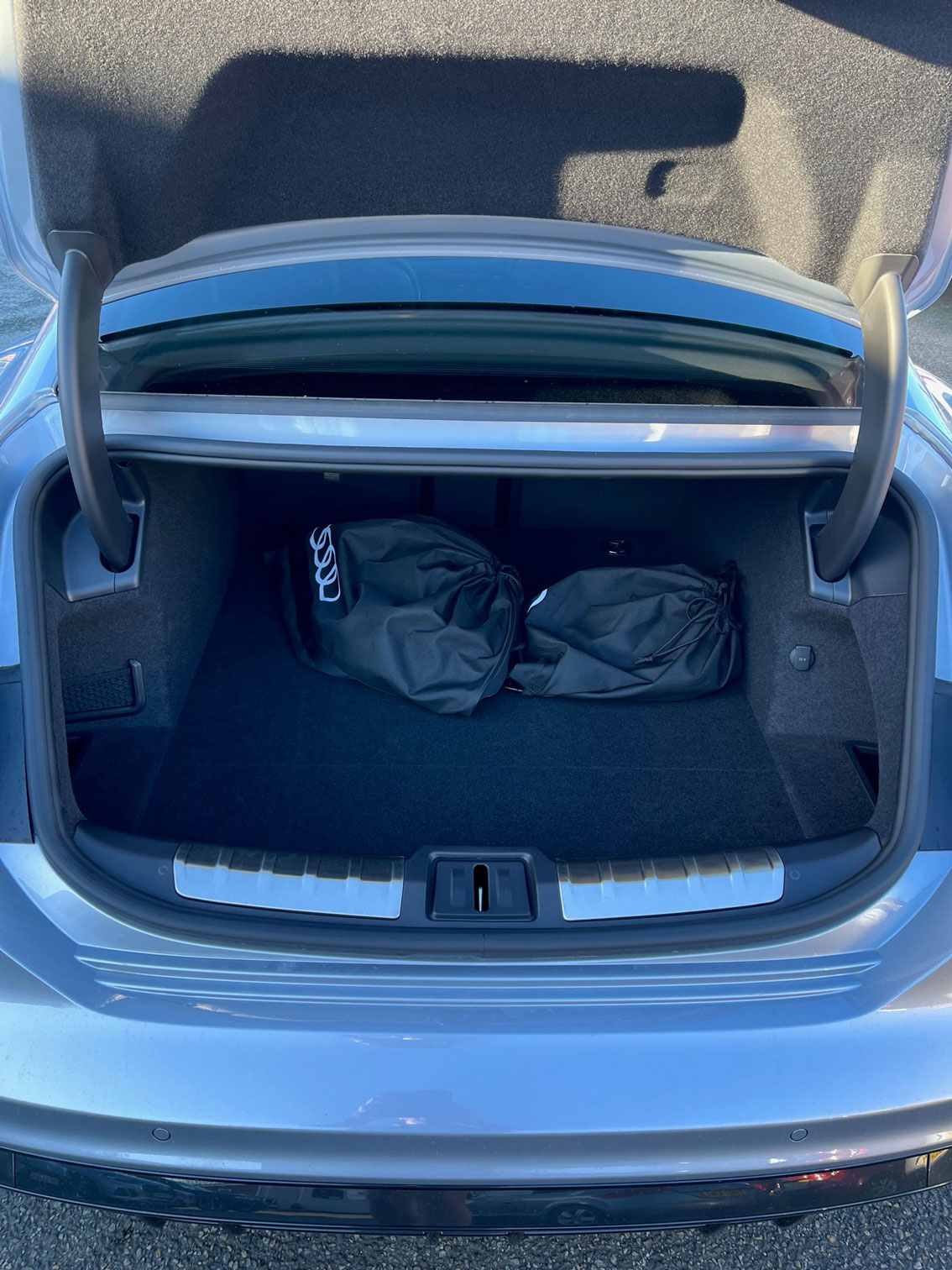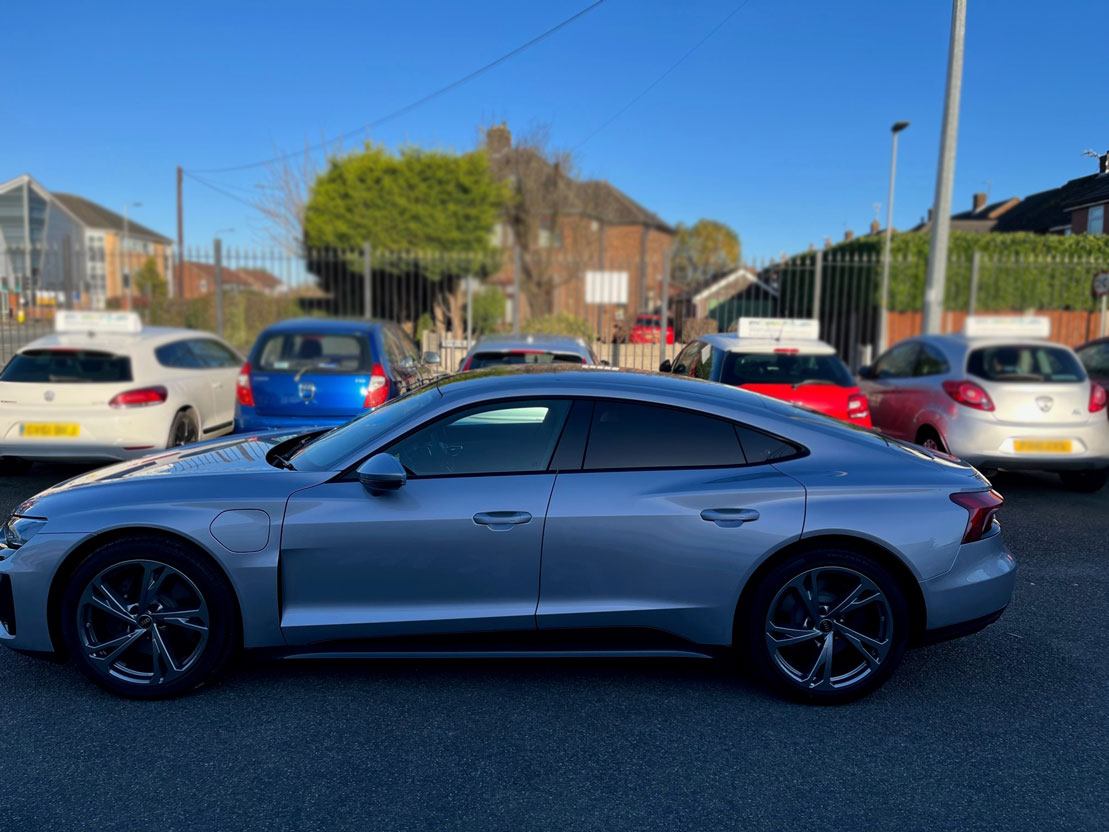
Mon-Fri 9am-5pm
Talk to our friendly electric car leasing experts now: 01942 910 001This website uses cookies to ensure you get the best experience. Learn more
Your Guide to Energy Tariffs for Electric cars - how much are sports EV cars to run on electricity

What does it cost for the electricity on a sports EV - Your guide to electric cars energy tariffs
As we move towards Christmas it is pleasant to hear more positive stories about EVs in the UK (after what has been a somewhat tumultuous year). As reported in SMMT today, UK car production is now up and back on track with pre-COVID levels, which does highlight the growing investment and confidence in our home-grown initiatives.
When you compare the 80,000 unit production in November 2022 to the 91,000 unit production in 2023, there is clear change. Not only that, but EV production is now increasing in the UK, with more manufacturers investing into Britain for battery technology.

As we have found in the last 3 - 5 years, complete reliance on production outside of the UK can be costly financially (and time). And as SMMT note, now that the EU have removed the rules of origin until 2027, we now have certainty for British/European battery sales. The prospects of higher tariffs would have been disastrous for many of us. For more information, head to the SMMT news section to find out more.
Confidence is key in any market. None more so than the luxury and sports performance EV market, where personal and business customers are expected to part with between £75,000 and £150,000!
Unbelievably, there are a huge amount of EVs which sit in this bracket, with Tesla, Mercedes, Audi, BMW, Lotus and Polestar to name but a few. In some ways, we probably have too many prestige BEV options compared to more affordable options which satisfy the growing retail and consumer markets.
But not unlike combustion options, any customer moving towards more expensive vehicles does need to consider more than just the price (or finance); there are queries of insurance, maintenance, infrastructure and fuel. It is the latter which is somewhat crucial in the electric vs petrol debates, as running costs are often heralded as a key rationale in making the transition.

But how much is my electric car going to cost to charge?
At e-car lease we understand lithium-ion tech. Indeed our company was lucky to receive the electric leasing broker of year award in 2023 by both the Broker News and Leasing Broker Federation . One of the key reasons behind this was our innovative EVC™ certificate which each customer receives in connection with their new vehicle.
And, amongst other things, this sets out the running / charging cost of your vehicle in advance of committing to your deal. However, to explain further, for any new EV customer, you do need to understand some basic details including:
- Battery Size - shown as kWh on a vehicle, this will indicate the size of battery for your EV. In general, the bigger the size of batteries, the longer the range will be but subject to weight and efficiency comparison. It often indicates vehicle expense, as batteries are often the most valuable aspect of the vehicle. But crucially, this also sets out to you the amount of energy you will require to fully-charge the vehicle and therefore the costs concerned;
- Electricity Cost - not unlike combustion options, there is no one set cost for your fuel and the charging session. This will differ according to where, and when, you charge. For example, you can charge at home (domestically), at work (commercial) or at a 3rd party charging device like a destination option or motorway services. In each instance there will be an underlying cost, shown as p/kWh, which helps you to ascertain the intended cost.

When you know your battery size and the underlying cost it is actually a pretty simple mathematical formula. Just on a side-note, you will see that e-car utilises “usable battery” as opposed to the overall battery.
The reason for this is that lithium-ion batteries will last the longest (i.e. limit degradation) where they are not fully-charged. Manufacturers therefore use software to ensure that the physical battery doesn’t reach this point; often it will reach 90-95% of the total battery capacity.
For example, the e-tron GT will show as a 93 kWh battery capacity BUT its usable battery is actually only 85 kWh (91% of this amount). For charging cost calculations, you need to use the usable capacity for this reason. So for the e-Tron GT, the charging cost would be:
- £22.95 on a domestic tariff of 27p/kWh (calculated by taking 85kWh and multiplying by £0.27) - assuming a 0 - 100% session;
- £67.15 on fast charging tariff of 79p/kWh (calculated by taking 85kWh and multiplying by £0.79) - assuming a 0 - 100% session; and
- £5.95 on a dedicated EV charging domestic tariff of 7p/kWh (calculated by taking 85kWh and multiplying by £0.07) - assuming a 0 - 100% session.
Of course these calculations do suggest a 0 - 100% session in every instance which is not totally realistic. For example, you would often rapid charge from 10 - 80% only (or even less for a top-up). Plus you will often not allow your battery to drop less than 20% in most instances. However, the example does stand.
What is abundantly clear is that choosing where to charge for you or the business is instrumental in the running cost and cost of fuel review. Additionally, it does highlight the importance of utilising a supported EV tariff, which some companies are now offering. In the example above, the e-tron GT would be just 2.3 pence per mile in fuel, which is some 10 - 12 pence less than your average petrol or diesel option (even more so for performance cars). On a 10,000 mile per annum contract, this is comparing a yearly bill of £200 in electricity to £1500 in petrol. So, what you pay for your electricity does matter.

How do I get cheap electricity for my EV?
As set out on the USwitch website there are now a number of suppliers offering dedicated programmes including:
- EDF
- Octopus Energy
- OVO Energy
- Scottish Power
- British Gas
However, do note that E.ON also offer a supported tariff and they do not appear on this website.
When reviewing each supplier, you will see that the terms and prices do vary according to the package you require. One consistent feature is the lower-price electricity for charging off-peak (generally between 11/12 and 6/7am).
And with your smart charging home charge point, this should be easy for you to set on your EV. Simply pre-set the charger to only charge during this period and this will ensure a lower price is achieved, instead of the higher rate on most domestic tariffs (currently 27p/kWh).
Some suppliers using renewable energy will even encourage you to charge at other times in order to utilise energy on the grid; this is where some customers benefit from almost free charging sessions. Many of the suppliers can offer a charge point with their package or a supported rate from one of their trusted suppliers.But with customer needs being so diverse you need to research what is most important to you, or the business, in that are you looking for the cheapest off-peak rate? Do you need the greenest provider? Do you need the most flexible tariff?
As can be seen in our analysis above, the charging costs are instrumental to your whole of life costs and EV experience.

In terms of the car shown, the Audi E-Tron GT Saloon 390kW Quattro 93 kWh 4dr Auto Pure Electric Vehicle, this is based on the following configuration:
- Floret Silver Metallic Paint
- Graphite grey paint finish inlays
- Twin leather - Black with 8 way adjustable sports seats
- 20" aluminium alloy wheels in a 5 twin spoke design in platinum look
- Mode 3 AC charging cable
In terms of the Audi e-tron GT - how does it perform?
The AWD option will have a 85 kWh usable battery which will offer 0 – 62 times of 4.1 seconds, 152 mph top speeds and 390 kW (or 523 hp). Expect a combined winter range of 220 miles with warmer weather allowing for 295 miles.
On charging, the 11 kW AC max will allow 9 hours and 15 min 0 – 100% charging times with the 268 kW DC maximum allowing 17 minute 10 – 80% times. A cargo volume of 405L is available with this car. It has a vehicle fuel equivalent of 124 mpg. This option cannot tow. This EV will have no Bidirectional charging.
e-car lease work alongside these select finance companies:





e-car lease have a partnership and affiliation with:



Register & get new deals weekly
 Exclusive offers
Exclusive offers
 Electric-only deals
Electric-only deals
 Never miss out
Never miss out

Talk to one of our experts
01942 910 001 Email usLeasing


© Copyright 2025 e-car lease. All rights reserved. e-car lease is a trading name of CarLease (UK) Ltd, e-car lease is a credit broker and not a lender. We are authorised and regulated by the Financial Conduct Authority. Registered No: 706617. BVRLA Membership No. 1471. Registered in England & Wales with Company Number: 09312506 | Data Protection No: ZA088399 | VAT No: 200422089 | Registered Office: Kings Business Centre, Warrington Road, Leigh, Greater Manchester, WN7 3XG
Made by morphsites®












